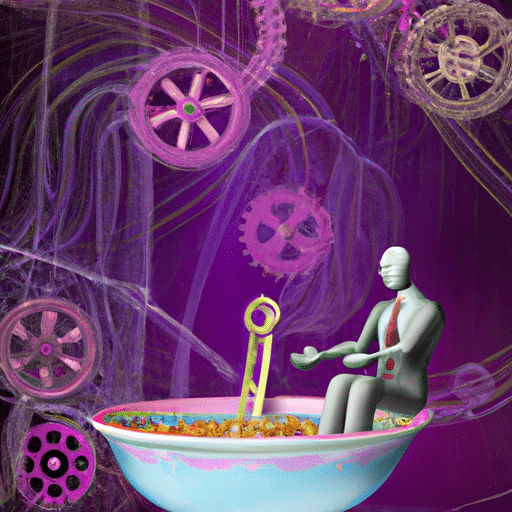In the ever-evolving landscape of business, companies often employ a variety of strategies to attract and retain customers. Among these strategies are the use of flywheels—self-reinforcing cycles that drive growth and success. However, while flywheels can be powerful tools for businesses, it’s important to balance their use with a deep appreciation for humanity.
The concept of the flywheel is not new; it has been used for centuries in various mechanical applications. In the context of business, the flywheel effect describes a virtuous cycle where positive actions reinforce one another, leading to exponential growth. But as with any powerful mechanism, caution is warranted. Accelerating a flywheel too quickly can have unintended consequences, including increasing cognitive dissonance and overloading individuals beyond their limits. As such, it’s essential to consider the broader impact on people and society.
This brings us to the idea of the Zeroth Law—a concept inspired by Isaac Asimov’s Zeroth Law of Robotics, which states that a robot may not harm humanity or, through inaction, allow humanity to come to harm. While Asimov’s laws were originally intended for fictional robots, the Zeroth Law can be applied to the world of business as well. Companies must prioritize the well-being of humanity above all else, even as they seek to grow and succeed.
The quantum world offers a fascinating parallel to this discussion. In quantum mechanics, the phenomenon of entanglement, often referred to as “spooky action at a distance,” describes how particles can become correlated in such a way that the state of one particle is dependent on the state of another, regardless of the distance between them. This interconnectedness serves as a reminder that our actions can have far-reaching effects, and we must be mindful of the ripples we create.
As we consider the use of flywheels in business, it’s important to ask ourselves what mechanisms and functions we are putting into motion. If automated and sped up 100 times, how might these processes affect us and those around us? The “paperclip problem,” a thought experiment in which an artificial intelligence tasked with maximizing the production of paperclips ultimately destroys humanity in its single-minded pursuit, illustrates the potential dangers of unchecked optimization. For example, aggressive sales tactics and relentless pursuit of differentiation can create a high-pressure environment that ultimately harms customers and employees.
The purpose of reducing the cognitive load should be to give every human being more time to study and spend time with their families, more time for deep, long work and reading, traveling, and exploring creative passions. It should be about building families and strong, vibrant, healthy communities.
In the end, the Zeroth Law of Business calls for a delicate balance. It’s about valuing humanity and being careful not to let our drive for success turn us, or our customers, into “soup.” It’s about recognizing that we are all interconnected, and our actions have consequences. It’s about driving responsibly, with an awareness of the impact we have on the world around us.
As Uncle Ben from Spider-Man famously said, “With great power comes great responsibility.” Let us wield the power of business with wisdom, compassion, and a deep respect for the well-being of all.



